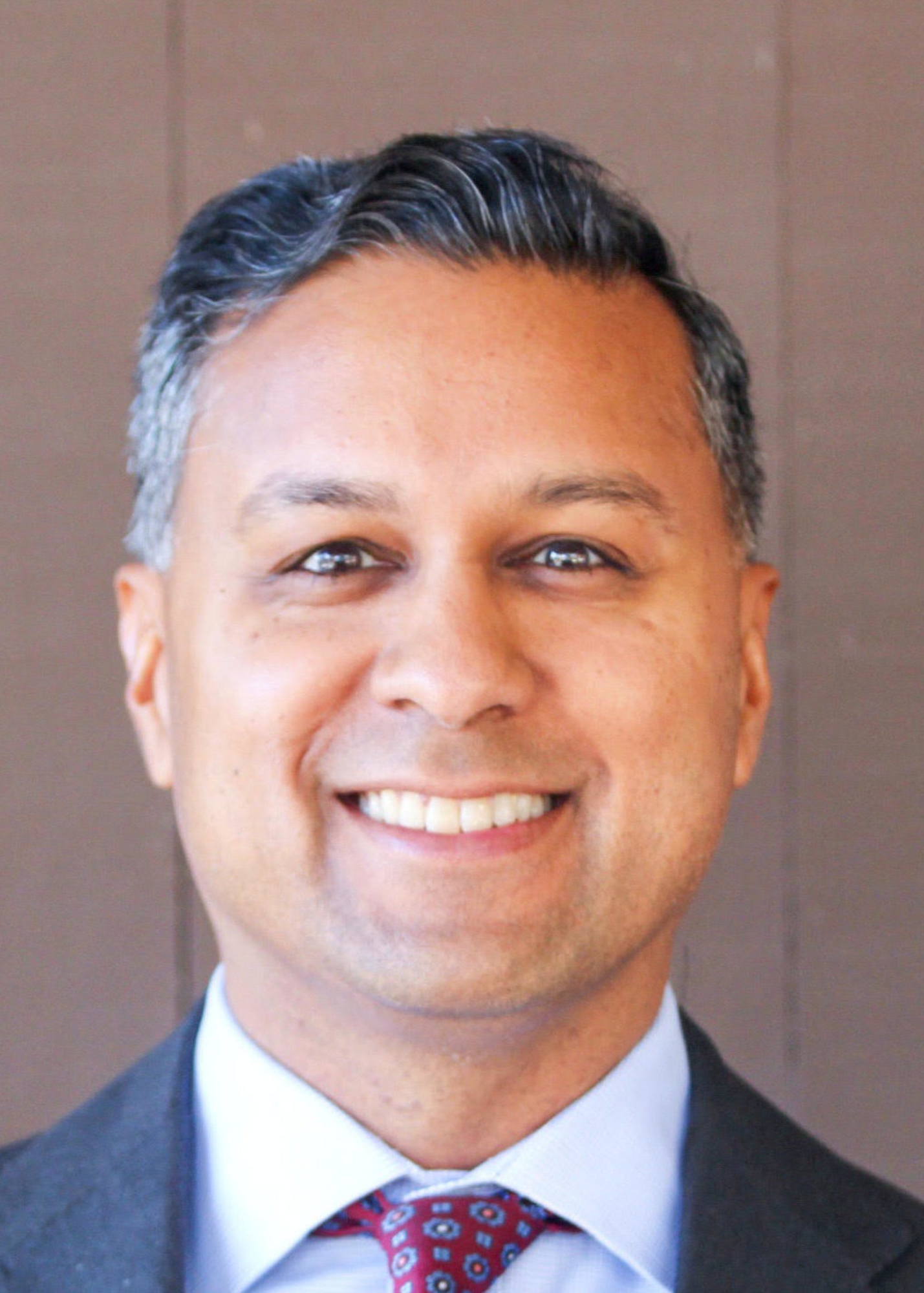
National Sepsis Initiative Expert Panel
In 2021, End Sepsis, the Legacy of Rory Staunton, convened the National Sepsis Initiative Expert Panel, distinguished group of leading experts in healthcare policy, medicine and academia to lead an initiative to improve the diagnosis and treatment of sepsis patients through national healthcare policy. The founding group includes clinicians, academics, policymakers–all with deep knowledge of the epidemiology of sepsis and the policy measures that can limit the incidence of sepsis and improve patient outcomes. Full biographies of the panelists appear below.
Since its inception, the National Sepsis Initiative Expert Panel has developed a series of innovative, pragmatic policy proposals focused on better understanding the toll of sepsis and implementing effective, realistic solutions and incentives to reduce the burden of sepsis on families, the healthcare system and the economy. We have convened multi-agency meetings at the highest levels and work in close collaboration with Senate leadership.
Achievements to Date:
In 2022, several of the National Sepsis Initiative Expert Panel’s policy proposals were funded in the FY23 Senate Appropriations bill.
- Funding the Agency for Healthcare Research and Quality (AHRQ) to “conduct a comprehensive set of studies that calculate the morbidity, readmissions, and mortality related to sepsis with respect to pediatrics, maternal sepsis, nursing home care, and rehab, and the association of pandemic-related changes in the healthcare system on the burden of sepsis.” The study will also examine the annual financial costs of sepsis in the United States. These studies will remedy serious gaps in our understanding of the overall burden of sepsis. The information gathered will enable the successful allocation of resources and development of effective strategies to combat the sepsis crisis.
- The requirement that CMS, in collaboration with CDC, develop new or identify existing quality and outcome measures for adult and pediatric sepsis and that CMS and CDC coordinate to develop or identify processes to publicly report quantitative and qualitative information regarding sepsis care. Furthermore, it explicitly directs CMS and CDC to examine New York’s own sepsis hospital measures (Rory’s Regulations) when developing their own, citing their success in substantially reducing sepsis mortality through “implementation of evidence-based outcome measures, implementation of evidence-based process measures, and mandatory hospital sepsis protocols, whereby all New York hospitals must train staff to treat patients according to updated and locally developed evidence-based protocols for early recognition and treatment.” This is the first momentous step towards national sepsis outcome measures for both adult and pediatric patients–which we have been fighting for since Rory Staunton died 10 years ago.
In the FY24 Congressional Budget, Congress allocated $3 million in sepsis funding to the CDC.
The funding is earmarked to assess the impact of its Hospital Sepsis Program Core Elements and improve the program using sepsis data from hospitals. This in turn will promote the awareness and uptake of the sepsis Core Elements. The funding also requires CMS and CDC to develop hospital quality measures for adult and pediatric sepsis. This is the largest amount ever allocated directly to combatting sepsis. END SEPSIS was instrumental in the allocation of these funds.
The National Sepsis Initiative Expert Panel is currently working on 2024/2025 policy initiatives.
For more on our policy work, visit our National Sepsis Policy page.
National Sepsis Initiative Expert Panel Biographies.
Dr. Martin Doerfler
Senior Vice President, Clinical Strategy and Development
Northwell Health
Associate Chief Medical Officer
Northwell Health
Martin Doerfler, MD, oversees and directs the Office of Clinical Transformation, a division of Northwell Health’s Center for Learning and Innovation, and is responsible for guiding the advancement of clinical care in accordance with Northwell’s strategic aims. He works to unify and coordinate Northwell’s improvement efforts so as to maximize their impact on the patients and communities that Northwell serves. Dr. Doerfler previously served as Northwell’s vice president of evidence-based clinical practice.
Before joining Northwell in 2010, Dr. Doerfler was senior director of clinical transformation at Philips Healthcare. Before that, he held several senior positions with Visicu Inc., including vice president of medical affairs, vice president of operations and vice president of clinical transformation.
Dr. Doerfler received his medical degree from the University of Pittsburgh School of Medicine, completed his residency in internal medicine at Bellevue Hospital/New York University, and a fellowship in critical care medicine at the National Institutes of Health (NIH). He also served as a medical staff fellow at the NIH, researching biochemical mechanisms of the cellular response to endotoxin.
 Foster Gesten, MD, MPH
Foster Gesten, MD, MPH
Former Chief Medical Officer for the Office of Quality and Patient Safety
New York State Department of Health
Foster Gesten, MD, was most recently the Chief Medical Advisor for Quality and Health Care Delivery at the Greater New York Hospital Association. He previously held leadership positions within the New York State Department of Health (NYSDOH), the last as the Chief Medical Officer for the Office of Quality and Patient Safety, an office he helped co-create. He has been the clinical leader at the NYSDOH responsible for the development of quality measurement and improvement programs within Medicaid and health insurance plans; he contributed to making New York a national leader in public reporting of health system performance, developed innovations in the application of quality incentives, and made demonstrable reductions in the healthcare ‘quality disparity’ between low income and commercially-insured populations. Dr. Gesten led New York’s efforts to make timely evidence-based care for patients with sepsis a priority for all hospitals through strategic use of regulation, innovations in the measurement of clinical process and outcomes, and the accountability of public reporting.
Dr. Gesten received his medical degree from Michigan State University College of Human Medicine
Mark Jarrett, MD
Senior Vice President and Chief Quality Officer
Northwell Health
Deputy Chief Medical Officer
Northwell Health
Professor, Medicine
Donald and Barbara Zucker School of Medicine at Hofstra/Northwell
As chief quality officer for Northwell Health, Mark P. Jarrett, MD, MBA, is responsible for system-wide initiatives in quality and safety.
Dr. Jarrett is also Northwell’s deputy chief medical officer and a professor of medicine at the Donald and Barbara Zucker School of Medicine at Hofstra/Northwell.
He previously served as chief medical officer and DIO at Staten Island University Hospital (SIUH). Prior to that appointment, Dr. Jarrett was director of Rheumatology at SIUH from 1982-1999. Dr. Jarrett has extensive research experience, and has been published on the subject of the immune response in systemic lupus erythematosus, quality and cybersecurity in health care.
Dr. Jarrett is board certified in internal medicine and rheumatology. He is a Fellow of the American College of Physicians and the American College of Rheumatology, and past president of the Richmond County Medical Society.
Dr. Jarrett earned his medical degree from New York University School of Medicine. He completed his residency in internal medicine at Montefiore Medical Center, and a fellowship at Montefiore Medical Center and Albert Einstein College of Medicine.
Dr. Jarrett also holds an MBA from Wagner College and an MS in Medical Informatics from Northwestern University. He is also a certified Healthcare Information Security and Privacy Practitioner (HCISPP).
 Mitchell L. Levy, MD
Mitchell L. Levy, MD
Chief, Division of Pulmonary, Critical Care, and Sleep Medicine
The Warren Alpert Medical School at Brown University
Mitchell M. Levy, MD, is Chief, Division of Pulmonary, Critical Care, and Sleep Medicine at The Warren Alpert Medical School at Brown University. He is also Systemwide Director of Critical Care Medicine at the Lifespan Health System in Providence, Rhode Island. Dr. Levy is Past-President of the Society of Critical Care Medicine (2009). His current research interests include translational research in sepsis, clinical trial design, and end-of-life care in the ICU. He has authored over 200 peer-reviewed articles and book chapters.
Dr. Levy is very active in the field of quality and safety. He is a founding and current member of the Surviving Sepsis Campaign (SSC) executive committee, and has been extensively involved in the New York State Sepsis Initiative, a mandated public reporting initiative in New York.
Upon receiving his medical degree from the University of Buffalo, Dr. Levy completed his residency training at the University of Colorado Health System. He is a fellow of the American College of Critical Care Medicine and the American College of Chest Physicians.
 Christopher Seymour, MD
Christopher Seymour, MD
Associate Professor, Departments of Critical Care, Emergency Medicine, and Clinical and Translational Science
University of Pittsburgh School of Medicine
Dr. Seymour is an Associate Professor in the Departments of Critical Care, Emergency Medicine, and Clinical and Translational Science at the University of Pittsburgh School of Medicine. Over the past 10 years, his research program has focused on clinical and translational studies involving sepsis, biomarkers, and large electronic health record databases. Dr. Seymour uses machine learning, bioinformatics, and biology-informed models to identify endotypes of sepsis. His work studies how to transition sepsis endotypes from offline inquiry to online learning in the electronic health record: at scale and at the point-of-care.
Dr. Seymour completed his NIGMS Career Development Award (K23), mentored by Dr. Derek Angus, titled “Prehospital identification of high-risk sepsis.” This successful award led to funding of a NIH/NIGMS R35 ESI-Merit Investigator Research Award, “Sepsis endotypes during emergency care.” He is Director of the Clinical and Translational Science Program in the Department of Critical Care Medicine, member of the International Sepsis Forum (ISF), and Associate Editor for Critical Care at JAMA. His research has been published in the New England Journal of Medicine, JAMA, and The Lancet, among others.
 Nirav Shah, MD
Nirav Shah, MD
Chief Medical Officer
Olea.Health
Senior Scholar
Stanford University
Dr. Shah is the Chief Medical Officer at Olea.Health and a Senior Scholar at Stanford University. He is a leader in public health, digital health and innovation, care transformation, and the strategies required to transition to high-value, patient-centered care. His expertise spans health and healthcare as an independent director of public and private companies and foundations, with prior service as a member of the HHS Secretary’s Advisory Committee (Healthy People 2030) and the Intelligence Science and Technology Experts Group in the Office of the Director of National Intelligence. Board-certified in Internal Medicine, Dr. Shah is a graduate of Harvard College and Yale School of Medicine, and is an elected member of the National Academy of Medicine. He serves on the Advisory Committee to the Director of the CDC and previously served as Chief Operating Officer of Kaiser Permanente in Southern California, and as Commissioner of the New York State Department of Health.
 Peter Silver, MD
Peter Silver, MD
Senior Vice President, Chief Quality Officer Associate Chief Medical Officer
Northwell Health
Associate Professor
Donald and Barbara Zucker School of Medicine Hofstra/Northwell
Peter Silver, MD, is Northwell Health’s senior vice president, chief quality officer and associate chief medical officer, responsible for system-wide initiatives in quality and safety. Dr. Silver was previously medical director for Cohen Children’s Medical Center where he managed the delivery of care at the nationally ranked children’s hospital. He joined the faculty of Cohen Children’s Division of Pediatric Critical Care Medicine in 1993, and was chief of the division from 2009-2016, when he assumed the role of medical director.
Dr. Silver is a fellow in the American College of Critical Care Medicine, American College of Chest Physicians and American Academy of Pediatrics. He led Cohen Children’s initiatives in early recognition and treatment of sepsis and the prevention of central-line associated bloodstream infections, which earned a Northwell Health President’s Award in 2009.
Dr. Silver has participated in leadership roles in several quality initiatives at the national level, including those from the Joint Commission Center for Transforming Healthcare and Children’s Hospital Association. He serves on the Board of Governors of Northwell Health Physician Partners and participates in several other Physician Partner committees.
Holding a bachelor’s degree from Princeton University, Dr. Silver earned his medical degree from the Loyola University Stritch School of Medicine and a master’s in healthcare administration from the Hofstra University Zarb School of Business.



